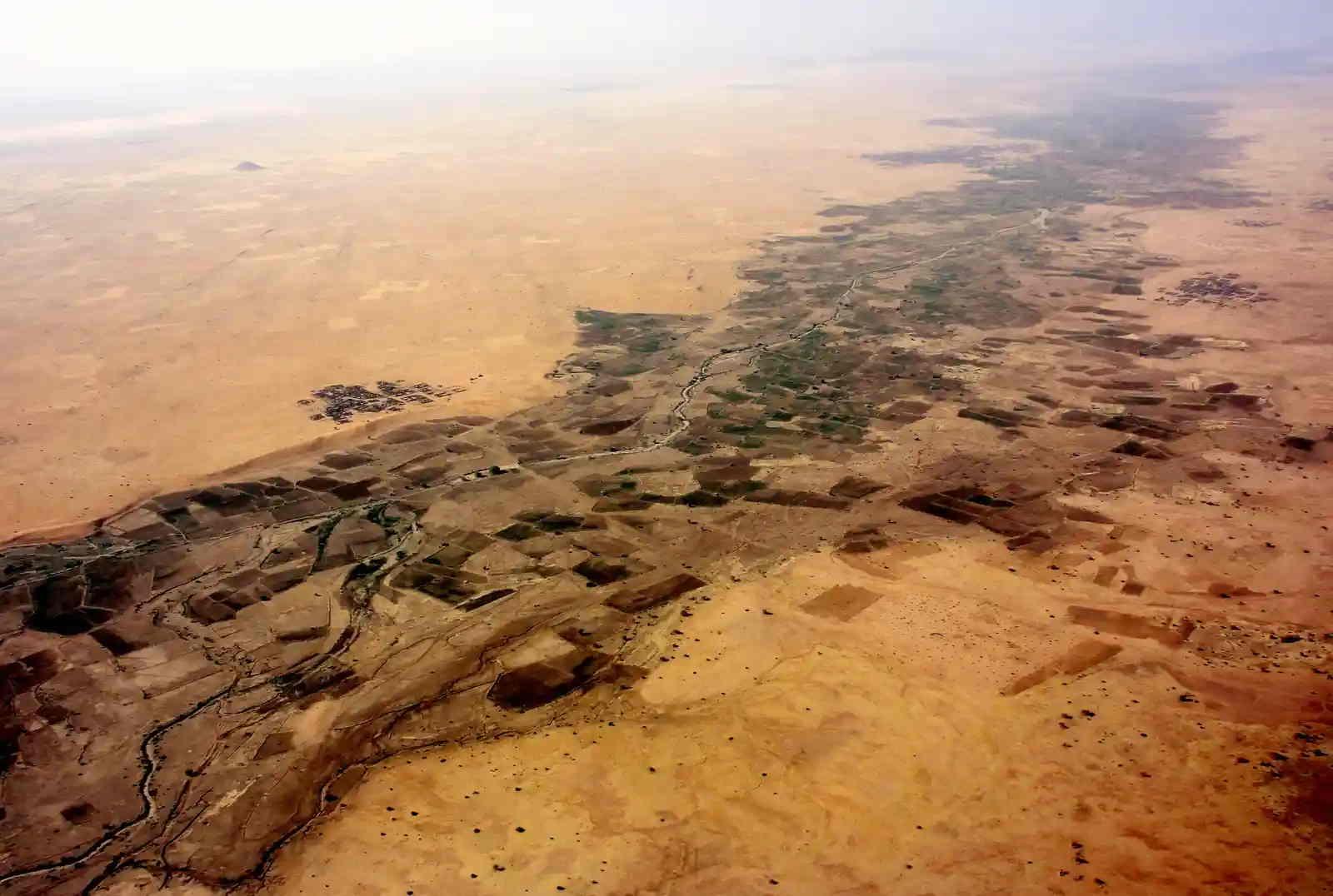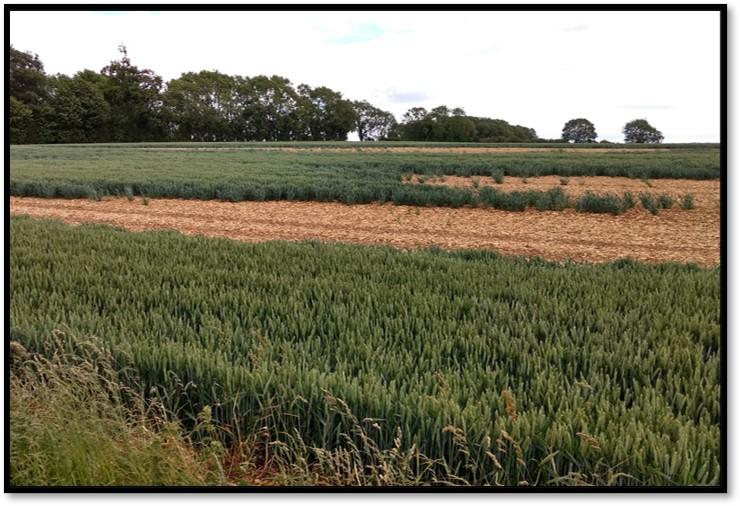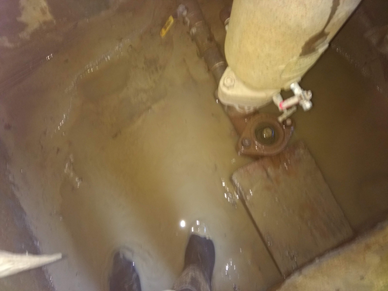Anyone done an analysis of this WRI paper?
Shefali Sharma
Hi All,
I’m curious if any academics have done an analysis of the findings of this WRI paper? https://files.wri.org/s3fs-public/comparing-life-cycle-greenhouse-gas-emissions-dairy-pork-systems.pdf
Their findings suggest intensive livestock production, particularly in pork and dairy, is the answer.
Thanks much,
Shefali
Shefali Sharma
Director, European Office
Institute for Agriculture and Trade Policy
Landline: +49 305 403 2435
Whatsapp: +49 177 146 9613
From: fcr...@googlegroups.com <fcr...@googlegroups.com>
On Behalf Of Corey Watts
Sent: Friday, July 24, 2020 11:08 AM
To: FCR...@googlegroups.com
Subject: Re: [FCRN-L] Re: Fw: grazing woodland to prevent wildfire
An interesting paper. Thanks!
Like pretty much anything in complex social–ecological systems, the question of carbon balance is highly context-specific. Unfortunately, some advocates of soil C sequestration see it as a panacea, all else regardless. These authors, however, make it clear they’re talking about a low-input, low-density grazing system, so it does make sense. I have questions about their timeframe, though. In other cases where the overall carbon balance has been found to be positive, the researchers have been careful to put a time limit on it, because at some point the landscape can’t absorb any more C, but emissions from the farm (may) continue. For example, https://www.researchgate.net/publication/316011327_Offsets_required_to_reduce_the_carbon_balance_of_sheep_and_beef_farms_through_carbon_sequestration_in_trees_and_soils But perhaps the ecology of the Sahel is such that there’s a good balance. It would seem so from the paper.
In Australia, the biggest drivers of soil C are moisture and temperature, with land management practices often (but not always) making little difference. And, of course, given Australia’a already capricious climate—plus climate change—what takes years to build up can be lost in a drought or in an afternoon in a bushfire.
Returning to Bill’s original question about methane emissions from wild/bushfires:
I can’t find a reference for Europe, but there are plenty of reports of fire and methane emissions floating around (pardon the pun!). Here are a few:
In Australia’s tropical savannahs, a federal scheme allows Indigenous communities to tap the carbon market by using careful (traditional) fire management to avoid runaway fires, thereby reducing emissions. https://www.agric.wa.gov.au/climate-change/carbon-farming-reducing-emissions-through-savanna-fire-management
Hope this is of use.
C
—————————————
Corey Watts
Victoria, Australia (GMT +10)
Principal Consultant
BrightWater
Strategy, Policy & Advocacy for Science, the Land & Sustainable Development
https://www.linkedin.com/in/aringofbrightwater/
ABN: 11410476473
Policy Director, Farmers for Climate Action,
Honorary Fellow, Agriculture & Food, The University of Melbourne,
On 24 Jul 2020, at 6:21 pm, Simon Ward <simon...@increment.co.uk> wrote:
Interesting paper but does it actually make sense? Surely the vast majority of the carbon capture elements (soil, trees) would be at equilibrium resulting in no additional capture (or loss) while even the low emissions of methane and nitrous oxide would result in positive emissions?
On Fri, 24 Jul 2020 at 09:10, Bill Grayson <billg...@phonecoop.coop> wrote:
Yes. it’s always good to consider new perspectives, Ray. I wonder how people feel about this: https://sinjajevinascience.files.wordpress.com/2020/02/assouma-et-al.pdf
best wishes
Bill
From: Ray Kowalchuk
Sent: Thursday, July 23, 2020 11:06 PM
To: FCRN-Listserv
Subject: [FCRN-L] Re: Fw: grazing woodland to prevent wildfire
So, are we discussing the essential role of livestock in preventing forest fires and mitigating climate change? I'm interested to see how much smaller the livestock industry's footprint becomes. Is the FAO still doing the calculations?
Of course, we should open the floor to other points of view.
On Thursday, July 23, 2020 at 3:27:12 PM UTC-4, Bill Grayson wrote:With wildfires becoming an increasing cause for concern in the UK it is interesting to see how this problem is already being tackled in southern Europe:
It’s especially heartening to see how the Ramats de Foc project is joining the circle by promoting the meat that comes out of this system. The sheep in the pictures all look supremely fit on what seems like a rather scant diet. Current projections for temperature increases here would suggest we begin to consider adopting such measures for all the proposed new woodland that will be required for achieving net zero.
Does anyone here know how much methane is emitted from wildfires and how much this might be contributing to the recorded increases of methane concentration in the atmosphere. Presumably it has the same isotopic ratio as other biogenic sources
best wishes
Bill
--
For more information about the Food Climate Research Network (FCRN), please visit www.fcrn.org.uk.
To receive a weekly round-up of the latest news and research in food sustainability, sign up for the FCRN's email newsletter, Fodder, here: www.fcrn.org.uk/fodder.
---
You received this message because you are subscribed to the Google Groups "FCRN-Listserv" group.
To unsubscribe from this group and stop receiving emails from it, send an email to FCRN-L+un...@googlegroups.com.
To view this discussion on the web, visit https://groups.google.com/d/msgid/FCRN-L/eebe2002-b1d2-4878-849d-c4aa6698c953o%40googlegroups.com.
--
For more information about the Food Climate Research Network (FCRN), please visit www.fcrn.org.uk.
To receive a weekly round-up of the latest news and research in food sustainability, sign up for the FCRN's email newsletter, Fodder, here: www.fcrn.org.uk/fodder.
---
You received this message because you are subscribed to the Google Groups "FCRN-Listserv" group.
To unsubscribe from this group and stop receiving emails from it, send an email to FCRN-L+un...@googlegroups.com.
To view this discussion on the web, visit https://groups.google.com/d/msgid/FCRN-L/329AB1A9E7B944B19BA6A103A6976DD0%40AdminPC.
--
Simon Ward
We have created The Policy Group to use our experience of policy and pricing analysis to develop a detailed understanding of the implications of Brexit on the agricultural industry. See www.thepolicygroup.co.uk
Increment Ltd www.increment.co.uk Tel: 01954 252859: Mobile: 07889 218509: Email: Simon...@increment.co.uK
Address: 11 Margett Street, Cottenham, Cambridge, CB24 8QY
Increment Ltd is a company registered in England and Wales with company number 4255913. Registered offices at: 11 Margett St, Cottenham, Cambridge, CB24 8QY, United Kingdom This communication is for the attention of the named recipient only, and should not be passed on to any other person. It is sent in good faith, in confidence, and without legal responsibility.We respect your personal data and only retain the minimum necessary. Our privacy policy is available on https://www.increment.co.uk/privacy-policy/
--
For more information about the Food Climate Research Network (FCRN), please visit www.fcrn.org.uk.
To receive a weekly round-up of the latest news and research in food sustainability, sign up for the FCRN's email newsletter, Fodder, here: www.fcrn.org.uk/fodder.
---
You received this message because you are subscribed to the Google Groups "FCRN-Listserv" group.
To unsubscribe from this group and stop receiving emails from it, send an email to FCRN-L+un...@googlegroups.com.
To view this discussion on the web, visit https://groups.google.com/d/msgid/FCRN-L/CAASUX6hjokZEH0kccd9nOn7JUTYABeaJho3TaLbSfkEJ98Dj4w%40mail.gmail.com.
--
For more information about the Food Climate Research Network (FCRN), please visit
www.fcrn.org.uk.
To receive a weekly round-up of the latest news and research in food sustainability, sign up for the FCRN's email newsletter, Fodder, here:
www.fcrn.org.uk/fodder.
---
You received this message because you are subscribed to the Google Groups "FCRN-Listserv" group.
To unsubscribe from this group and stop receiving emails from it, send an email to
FCRN-L+un...@googlegroups.com.
To view this discussion on the web, visit
https://groups.google.com/d/msgid/FCRN-L/7B9A3784-E7BA-4C0E-92B5-5801208F3DFE%40brightwater.earth.
Simon Ward
To view this discussion on the web, visit https://groups.google.com/d/msgid/FCRN-L/DM6PR18MB3003D23B550C5BBACFA7BC9CD5730%40DM6PR18MB3003.namprd18.prod.outlook.com.
Ray Kowalchuk
Is perhaps a degree of confusion (and perhaps intentional, or at least unapologetic) in that some conversations are about the carbon activity of animals where the rangeland is exactly that -- owned and 100% dedicated to the raising of cows for flesh or fluid, and this pollutes some conversations about climate change solutions, where putting cows in marginal land might sequester carbon and restore fertility. Who, other than, presumably, Allan Savory, is actually doing the latter? I don't know of any success stories where someone wanted to fight climate change and bought some distressed land, and then went to an auction and bought some cows, and after some experimentation turned an animal historically associated with "overgrazing" land into a key feature of humanity's survival path, where our relationship with the biosphere corrects itself and we survive climate change and global depletion.
Anyone may have detected my coy tone in a previous comment about how soil sequestration gains will offset the damage of animal agriculture. That's not how solutions work, just a desperation to exonerate "beef" as "climate friendly." In that future where we survive we learn to curb our appetite for the flesh of bovine megafauna.
To view this discussion on the web, visit https://groups.google.com/d/msgid/FCRN-L/DM6PR18MB3003D23B550C5BBACFA7BC9CD5730%40DM6PR18MB3003.namprd18.prod.outlook.com.
Julian Jones

pic: Constructed SOCS systems : The Wadi El Ku river has been transformed by weirs. Photograph: Neil Munro/UNEP ( https://www.theguardian.com/world/2019/dec/18/how-water-is-helping-to-end-the-first-climate-change-war )


To unsubscribe from this group and stop receiving emails from it, send an email to FCRN-L+unsubscribe@googlegroups.com.
To view this discussion on the web, visit https://groups.google.com/d/msgid/FCRN-L/eebe2002-b1d2-4878-849d-c4aa6698c953o%40googlegroups.com.
--
For more information about the Food Climate Research Network (FCRN), please visit www.fcrn.org.uk.
To receive a weekly round-up of the latest news and research in food sustainability, sign up for the FCRN's email newsletter, Fodder, here: www.fcrn.org.uk/fodder.
---
You received this message because you are subscribed to the Google Groups "FCRN-Listserv" group.
To unsubscribe from this group and stop receiving emails from it, send an email to FCRN-L+unsubscribe@googlegroups.com.
To view this discussion on the web, visit https://groups.google.com/d/msgid/FCRN-L/329AB1A9E7B944B19BA6A103A6976DD0%40AdminPC.
--
Simon Ward
We have created The Policy Group to use our experience of policy and pricing analysis to develop a detailed understanding of the implications of Brexit on the agricultural industry. See www.thepolicygroup.co.uk
Increment Ltd www.increment.co.uk Tel: 01954 252859: Mobile: 07889 218509: Email: Simon...@increment.co.uK
Address: 11 Margett Street, Cottenham, Cambridge, CB24 8QY
Increment Ltd is a company registered in England and Wales with company number 4255913. Registered offices at: 11 Margett St, Cottenham, Cambridge, CB24 8QY, United Kingdom This communication is for the attention of the named recipient only, and should not be passed on to any other person. It is sent in good faith, in confidence, and without legal responsibility.We respect your personal data and only retain the minimum necessary. Our privacy policy is available on https://www.increment.co.uk/privacy-policy/
--
For more information about the Food Climate Research Network (FCRN), please visit www.fcrn.org.uk.
To receive a weekly round-up of the latest news and research in food sustainability, sign up for the FCRN's email newsletter, Fodder, here: www.fcrn.org.uk/fodder.
---
You received this message because you are subscribed to the Google Groups "FCRN-Listserv" group.
To unsubscribe from this group and stop receiving emails from it, send an email to FCRN-L+unsubscribe@googlegroups.com.
To view this discussion on the web, visit https://groups.google.com/d/msgid/FCRN-L/CAASUX6hjokZEH0kccd9nOn7JUTYABeaJho3TaLbSfkEJ98Dj4w%40mail.gmail.com.
--
For more information about the Food Climate Research Network (FCRN), please visit www.fcrn.org.uk.
To receive a weekly round-up of the latest news and research in food sustainability, sign up for the FCRN's email newsletter, Fodder, here: www.fcrn.org.uk/fodder.
---
You received this message because you are subscribed to the Google Groups "FCRN-Listserv" group.
To unsubscribe from this group and stop receiving emails from it, send an email to FCRN-L+unsubscribe@googlegroups.com.
